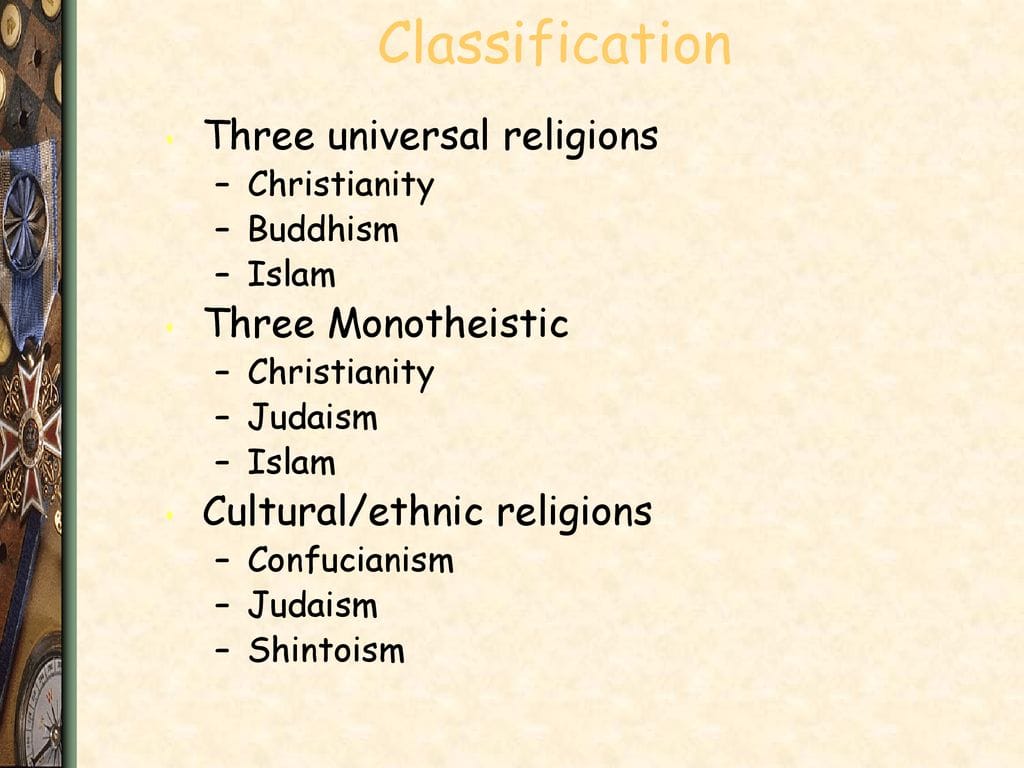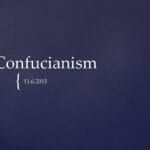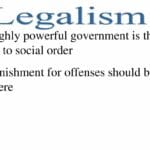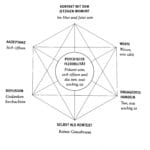Imagine you have two friends, one who believes that Confucianism is all about Chinese culture and another who thinks it’s something everyone can learn from. They’re having a friendly debate, and we’re going to listen in to see if we can figure out who’s right.
Is Confucianism Culture-Specific or Universally Relevant?
This question has sparked many interesting conversations. Confucianism is deeply rooted in Chinese history and culture. But, its core values, like treating others with kindness (Ren) and living a virtuous life, feel pretty universal, don’t they?
Let’s break it down. Confucianism places a strong emphasis on things like respecting your ancestors and understanding your place in society, which are very much tied to Chinese tradition. So, it’s easy to see why some people see it as an ethnic philosophy specific to that culture.
But here’s the twist: those universal values we talked about, like living ethically and building a harmonious society, resonate with people from all walks of life. Who wouldn’t want a more ethical and harmonious world?
And here’s more food for thought: Confucianism has never been a rigid, unchanging system. It has this amazing ability to adapt to different cultures and time periods while staying true to its main principles.
Even today, we’re seeing a resurgence of interest in Confucianism around the world. People are finding wisdom in its teachings that speaks to the challenges of our modern, globalized society. That adaptability and enduring appeal make a strong case for considering its universal aspects.
So, what’s the answer? It’s likely a bit of both. Confucianism is a complex tapestry woven from threads of ethnic tradition and universal philosophy. It’s a system that honors its roots while also embracing the possibility of growth and interpretation beyond those roots. Just like the most interesting conversations, there’s no easy answer, but exploring the question allows us to appreciate the richness and depth of this ancient yet surprisingly relevant philosophy.
Confucianism and Ethnicity: Exploring the Connection
We often link Confucianism with China, which makes sense given its roots. Confucius, the philosophy’s founder, was born and lived in ancient China. He was trying to bring back peace and order during a time of major upheaval in Chinese society. His teachings, which stressed things like respect for elders, family ties, and ethical behavior, became super influential in China and beyond.
But here’s the thing: labeling Confucianism as belonging to just one ethnic group oversimplifies it. It’s more about values and principles that can apply to anyone, no matter their background. While strongly tied to Chinese history and culture, Confucianism’s reach has stretched far beyond those borders.
Think of it this way: the ideas of family, respect, and learning are universal. They resonate with people from all walks of life. This explains how Confucianism found its way into different cultures, influencing how people think and interact. So, while it started in China, it’s not really about being a certain ethnicity. It’s more about striving to be a better person within your community and society as a whole.
Now, some folks might debate whether tying Confucianism to a specific ethnic group even matters. It’s a complex issue with no easy answers. Some argue that focusing on ethnicity misses the point of Confucianism’s adaptable and inclusive nature. Others think acknowledging its cultural origins helps us understand how it developed and changed over time. It’s a discussion that’s still unfolding, and different perspectives add to our understanding.
Confucianism: Religion, Ethics, or Both?
This question has puzzled scholars for ages! Confucianism, born from the teachings of Confucius, doesn’t fit neatly into the boxes we often create for “religion” and “ethics.” It’s like a vibrant tapestry weaving together moral guidance, philosophical insights, social customs, and even political ideas – a complete guide to living a good and meaningful life.
One of the things that makes Confucianism tricky to label is that it doesn’t have the typical elements we see in organized religions. There’s no specific deity being worshipped, no fixed set of beliefs you must accept, and no formal process for becoming a “member.”
However, Confucianism places a strong emphasis on rituals and ceremonies, especially those honoring ancestors. This respect for family and tradition, combined with a deep commitment to cultivating virtues like kindness, honesty, and respect, certainly has echoes of religious practice.
So, is it a religion? Is it an ethical philosophy? The answer, it seems, is complex and might even depend on who you ask. Some scholars suggest that Confucianism might be best understood as a kind of social and moral philosophy that, while not a religion in the traditional sense, holds a similarly important place in the lives of its followers. This very debate highlights how Confucianism challenges our assumptions and encourages us to think beyond simple categories.
Exploring Universalizing and Ethnic Religions
Let’s dive into whether Confucianism fits into the box of an ethnic tradition or a universal philosophy. It’s a question scholars have been grappling with for ages, and it’s not exactly a walk in the park to figure out.
The Genesis of Confucianism
Picture this: ancient China, way back during the Zhou Dynasty (that’s 1046-256 BCE for all you history buffs). A wise guy named Confucius started teaching about ethics, getting along with your neighbors, and becoming the best version of yourself. This, my friends, is where Confucianism took root.
Core Tenets of Confucianism
What’s the fuss all about? Well, Confucianism is big on a few things:
- Ethics: Think of this like a moral compass. Confucians believe in doing the right thing, being kind, honest, and loyal – basically being a stand-up person.
- Social Harmony: Imagine a world where everyone gets along. Confucians think this is super important for a happy society.
- Personal Growth: This is all about lifelong learning, looking inward, and always trying to be better than you were yesterday.
Ethnic Tradition or Universal Philosophy: The Heart of the Matter
Here’s where things get a bit tricky. Is Confucianism woven into the fabric of Chinese culture, or is it something everyone can connect with?
The Argument for Ethnic Tradition
Think about it: Confucianism has been a part of Chinese history, thought, and everyday life for centuries. It’s hard to separate it from Chinese identity and nationalism.
The Argument for Universal Philosophy
But wait, there’s more! Confucianism talks about ethics, harmony, and self-improvement. Aren’t those values everyone can appreciate, no matter where they come from? Plus, Confucianism has spread beyond China, finding homes in places like Japan, Korea, and Vietnam.
The Verdict: A Complex Tapestry
Honestly, there’s no easy answer. It’s probably a bit of both. Confucianism is deeply connected to Chinese culture, but its core ideas resonate far beyond China’s borders.
The Takeaway
Confucianism is a rich tapestry of ethics, philosophy, and social teachings. It’s complex, it’s influential, and it’s had a huge impact on Chinese culture and beyond. Whether you see it as an ethnic tradition, a universal philosophy, or a blend of both, one thing’s for sure: Confucianism makes you think!
If you’re interested in the definition of Confucianism in AP world history, this article offers a comprehensive explanation.
- Senior at What Age: Benefits & Eligibility Guide - March 29, 2025
- Unlocking Senior Benefits: How Old is a Senior? Your Complete Guide - March 29, 2025
- Master Russian Politeness:A Guide to Saying Please - March 29, 2025
















